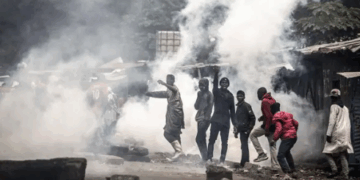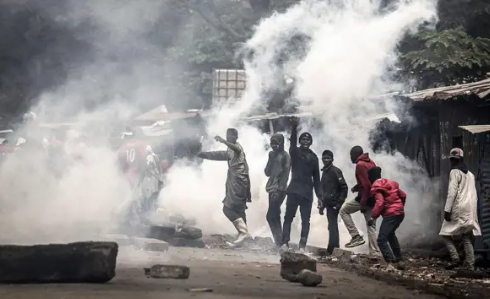At least 11 people have been killed and dozens more injured as nationwide anti-government protests rocked Kenya on Monday, coinciding with the 35th anniversary of the historic Saba Saba uprising.
The protests, marked by clashes between demonstrators and police, brought parts of the country to a standstill.
The Kenya National Commission on Human Rights (KNCHR) confirmed the deaths and reported that several police officers were also among the injured, calling for restraint on both sides.
“This is a tragic echo of past struggles. The right to protest must be protected, and life must be respected,” the KNCHR said in a statement released Tuesday.
The Saba Saba protests named after the Swahili term for “seven-seven” commemorate the July 7, 1990 demonstrations that led to the end of Kenya’s one-party rule and ushered in multiparty democracy two years later.
This year’s anniversary was met with renewed calls for reform as protestors cited skyrocketing living costs, corruption, political suppression, and police brutality as reasons for taking to the streets.
In Nairobi, Kisumu, Mombasa, and Eldoret, roads were blocked, businesses closed, and clouds of tear gas filled the air.
Human rights groups documented dozens of arrests and criticized the use of excessive force by security agencies.
Unlike previous organized demonstrations, Monday’s protests were largely grassroots, driven by youth movements and civil society actors mobilizing through social media.
Protesters chanted slogans referencing the 1990 resistance, demanding meaningful governance reforms and economic relief.
“Saba Saba is not just history it’s a living struggle.” “We want jobs, dignity, and justice, not bullets and batons”, a protestor hinted.
As of Tuesday, the Kenyan government has not issued a formal statement regarding the casualties or the KNCHR report.




















